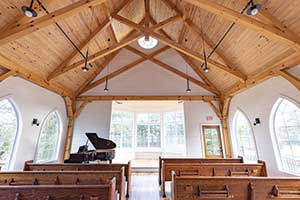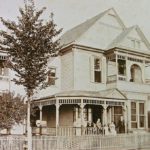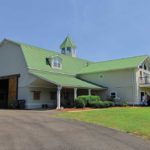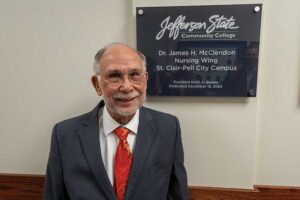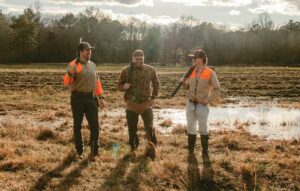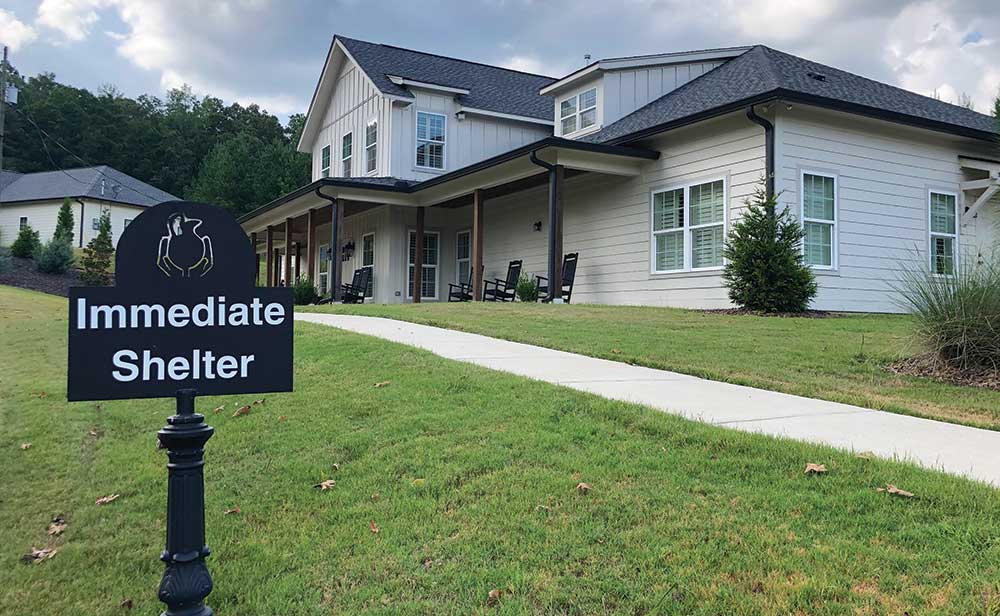
Faith-based healing in a peaceful environment finds home in Odenville
Story by Elaine Hobson Miller
Submitted Photos
Anna was beyond broken. Hooked on methamphetamine and heroin, she was trying to get off drugs. She was living in Colorado, but her story started as a child in her native Estonia. That’s where her mother sold her for sex as a preschooler.
“The person who hurt me the most was my own mother,” says Anna, now 37 and living in Alabama. “She was hooked on drugs. One day when I was 5 years old, my Dad walked in on me and two men. He tried to protect me. My mom killed my dad.”
In 2020, 10,583 situations of human sex trafficking were reported to the National Human Trafficking Hotline. The number of situations involved 16,658 individual victims. Almost 81 percent of those were women. Likely 50percent or more were children. Fifty-nine of these women made their way to The WellHouse, a faith-based healing place for women who are victims of sex trafficking. Anna is one of the nearly 600women who have been through The WellHouse program since its founding in 2010.
“There is no such term as human trafficking in Russia,” Anna says. “What my mother did to me was considered normal.” After their father’s death, she and her brother were sent to an orphanage in Latvia, where they stayed eight years. “There was lots of abuse there, too, physical, emotional, sexual.” She came to the U.S. in January 1981, when a Florida pastor and his wife adopted her and her brother. “But I was damaged goods, I had no self-worth.” She moved to Colorado to work on a ranch when she was 19. She married and divorced twice and had a child by each husband. “I had really bad attachment disorder and PTSD.”
She developed conversion disorder – an emotional state that turns into physical seizures. In the middle of a Botox injection in her neck, seizures brought back the buried memories of her childhood experiences. “I got really sick physically and emotionally,” she says. “I had counseling, physical therapy. But I didn’t know how to cope, so I started using meds. I ran out of my prescription meds, started using my son’s ADHD prescriptions. Methamphetamine is pretty much the same as ADHD meds.”
Anna weighed 73 pounds and had bruises all over her body when she got herself admitted to a psychiatric hospital. “I was slowly killing myself,” she says. “My (adoptive) mom and me were looking for places for rehab, and I must have filled out an application for The WellHouse while researching online. I was in the hospital for two weeks when the rescue supervisor from WellHouse called me and said they had a bed for me.”
Anna entered The WellHouse grounds in Odenville on Nov 4, 2019. It was after sundown. Despite the darkness, she immediately felt a sense of peace. “The healing started as soon as I got on campus,” she says. “You feel safe here. It was time for me to stop running and face my demons.”
Anna graduated from WellHouse in December 2020, after receiving “lots of TLC,” and experiencing the programs the ministry offers. “They taught me self-worth, and I started growing. I learned how to cope with trauma. They teach you how to be the person you are. I found God here, too, and learned of his love. I’m still getting counseling for maintenance, but I have a job in retail, and I’m living on my own. WellHouse literally helped me heal.”
The WellHouse is a faith-based, Christ-honoring program for young women caught up in sex trafficking for whatever reason, according to board chairman Al Worthington.“We’re of the opinion that without faith there can be no major healing because the trauma is too great.”
Worthington, an area real estate developer, got involved in The WellHouse in 2013 when his wife showed him a newspaper article about a nationwide human trafficking sting in the U.S. and in Canada. The sting resulted in the arrest of 123 pimps. One of them was based in Birmingham, and three young girls under his charge were rescued.
“The article quoted the woman who founded this ministry,” Worthington says. “She had a pretty horrific youth, was trafficked at 15 through the age of 26, and ended up here in Birmingham. I called her that day and met with her the next. I told her I thought I might be able to help.”
Finding A Home
The founder began The WellHouse by taking exploited girls into her home in Tarrant City. Around 2011 or 2012, the Woman’s Missionary Union, a partner of the Southern Baptist Convention, gave her an old house in West End, where churches adopted rooms, decorated and furnished them. In 2014, WellHouse moved to Pell City, but when they eventually wanted to expand, neighbors expressed concerns about who was coming into the neighborhood, and the city asked them to leave. “We bought 63 acres in Odenville in the summer of 2016, and in 11 months built two homes and an office,” Worthington says. They now have six buildings, including a chapel and administration building.
Enter the grounds on a warm spring day, and you’ll see several large, rambling, ranch-style homes. You can feel the breeze off the pond and watch the antics of the resident gaggle of geese. Beside the pond are picnic tables and a hammock that beckons one to doze between the trees from which it is strung. Also next to the pond is a chapel – the newest building on campus. It smells of new wood inside, and its exposed ceiling beams give it a rustic feel. It’s easy to see why Anna felt at peace on the campus.
“The purpose of The WellHouse is to rescue women who have been trafficked for drugs and sex, and some from domestic abuse,” says Carolyn Potter, CEO of The WellHouse. “We built the programming around the issues they have.” These include childhood sex abuse, sex trafficking, substance abuse, a lack of basic life and social skills and a lack of education.
How It Works
The program begins with the rescue. “We get them when we can, rescue them from different sources,” Worthington says. “Some are reported by police, some call our 800 number or the National Human Trafficking Hotline. Next comes time in the Stabilization Center, an apartment set aside for this purpose in one of the campus buildings.
“This is a huge life change for these women,” Potter says. For two weeks they receive around-the-clock attention. They are seen daily by a home coordinator and director of trauma therapy, who build an individualized treatment plan for each.
Taking a holistic approach, The WellHouse treats the physical, emotional, relational and spiritual problems of these women. Physical problems, such as traumatic brain and sexual injuries, are handled first. The physical heals the fastest, while the psychological takes longer.
“It’s healing to be in a pretty place,” says Holly Bunn, chief development officer at The WellHouse. “Our buildings are new, with new furnishings, much of them donated. We have pretty, elegant decor, because these women deserve it.”
The WellHouse has an on-site medical clinic managed by UAB School of Nursing. “Their medical needs can be intense,” says Potter. “We partner with Alabama Psychiatry for those who need more. Odenville Drugs has been a great partner, too.”
When the women first arrive, they’re dealing with a lot of psychological trauma. They don’t have much self-confidence, they don’t make eye contact, and they don’t trust anyone. “That’s how trafficking works, by destroying their sense of self-worth,” Bunn says. “After a while here, they begin to believe in their own worth. They get to know themselves again, then start to accomplish things – they get their driver’s licenses, their GEDs, achieve six months of sobriety. Then they keep going on their path to success.” They can stay at the WellHouse up to three years.
Their treatment plan is divided into three phases, beginning with time living inThe Immediate Shelter (TIS). That’s where women continue to be evaluated and assessed and to get back the identification documents, such as passports and driver’s licenses, that traffickers took from them. “TIS can house 12 women,” says Bunn. “They stay there from 90 days to four months. At that point, with the help of her case manager, a woman will decide whether to remain at The WellHouse long term.”
Phase 2, or Next Steps to Freedom (NSF), involves living in another home that also houses 12 women. “There, they continue with what was started in the first phase, with a case manager and more therapy,” says Bunn. “Cases become even more individualized in this phase.”
Although most of the women at The WellHouse are between 20 and 30 years old, most haven’t finished the 10th or 11th grade, according to Bunn. “We meet them where they left off with their education, before or at the time when trafficking began,” she says. “We help anybody who wants to go to college, too, through scholarships,” Potter says. “They attend here, online, in mobile classrooms. We apply to a group in Tennessee calledFree for Lifethat gives scholarships specifically for trafficking survivors, and they can go anywhere they want online.”
The Next Phase
After meeting certain requirements, the women “graduate” from The WellHouse. “We actually host a graduation ceremony for them,” Bunn says. That brings about the third phase of the program, Next Steps to Independence (NSI). “Some women move back to their hometowns in this phase, but some aren’t financially ready to live alone,” she says. “NSI takes place in one of our buildings that contains apartments with two bedrooms each, for 16 total beds. They must apply to live there and must have full-time jobs or almost full time and be enrolled in college. They must have their own transportation, too.”
Most of the women in NSI apartments will have saved up to buy a car, but The WellHouse helps with that, too. “Car day is a big day here,” Bunn says. “We have a car fund from donors, and we’ll use it to match their savings up to $2,500.” Women may live one to two years in these apartments, because they need that time to work out the kinks of their new lives. “They pay us $200 a month rent,” Bunn says. “That money goes into a savings account, and we give it all back to them when they leave here.”
Some of the programs offered at The WellHouse include art therapy by a retired schoolteacher, equine therapy at King’s Home in Chelsea, quilting classes taught by women from a local church, and ShopWell, a work-therapy program where the women make jewelry that is sold to the public online, at events and on campus. ‘After they work with ShopWell for six months, The WellHouse helps them find part-time jobs in the community, usually with some of their sponsoring partners. “We also offer job preparation courses,” says Bunn. “We partner with WorkFaith, a career preparation organization.”
Volunteers help, too. “We have a volunteer training program for individuals who are interested,” Bunn says. “They can house sit for a while to give a house mom a break, handle transportation, cut grass, do repairs, mentor, etc. We’re always looking for more volunteers.” Some of the administrative work is done by volunteers, while others sort clothing for Elizabeth’s Closet, the campus clothing boutique furnished by donations. “Every quarter we have a shopping day for the women,” Bunn says. “Volunteers sort the donations and tidy up.”
As a ministry, The WellHouse philosophy is that a spiritual encounter with God and the healing power of Jesus are paramount to recovery. However, staffers don’t force the issue. Participation at monthly chapel services is voluntary. “Spirituality is threaded throughout our programming because we want everyone to know they are loved by God and us,” Bunn says. “We have Bible studies and morning prayer. But we support and facilitate believers of other religions besides Christianity, too.”
The WellHouse operates on an annual budget of $2.4 million, which is funded 100% by donations and grants from individuals, churches, foundations, corporations, nonprofits and federal funding for victims of crime. Fundraising gets a boost with special events in January and October. The one in October is a luncheon where a sex-trafficking survivor shares her story. The January affair is a big party called the Grace Gala, held this year at Thomas Jefferson Towers in Birmingham. “We may have to find a bigger venue next year,” Bunn says. “We had 300 people attend this year.”
The newest program for the ministry, WellHouse Child, is aimed at girls between the ages of 11 and 18. “We have learned that lots of teens are being trafficked,” Bunn says. “They’re minors, and there used to be no safe house in Alabama for trafficked minors.” WellHouse Child is housed in a new, separate building erected in 2020, and will hold 10 minors. “We’re more than excited to begin this new program,” Bunn says. “These girls are identified the same way as other women, through law enforcement, hospitals, health care workers, families. Sometimes, their families are the perpetrators.”
WellHouse Child is a lot like the adult program but tailored to children. They have the same issues as older women. “Their needs are the same, but more extreme,” Bunn says. “They are more likely to run away. Some may need more psychological care than we can give them.”
WellHouse partners with Children’s of Alabama, where the youth are assessed and may have to return for medical attention. “We’re very excited because there’s such a huge need for this program,” Bunn says. “We take residents from all over the U.S. We’ll be able to pave the way through helping others understand how to do this work.”
Human trafficking is such a hidden crime thatit’s hard to get statistics, according to Bunn. Social media plays a big part in it, because victims are groomed and sold online through commercial sex ads. “Only one percent of cases are from abductions,” she says. “Most involve a manipulation process.” Men can be manipulated into the sex trade, too, and while The WellHouse only accepts women now, Bunn, Potter and Worthington hope to add a program for men someday.
Every woman who winds up at The WellHouse comes of her own will. There are no contracts, and the only requirement is the desire to get well. “As much love and support as we give, it’s a lot of work for these women,” Bunn says.
Anna couldn’t agree more. “At times, I wanted to give up, but I couldn’t,” she says. “I’m grateful I had the courage to stay at WellHouse.”
Editor’s Note: If you suspect a girl or woman is the victim of human sex trafficking, you may call The WellHouse local Crisis Line at 205-306-6058 or their toll-free Crisis Line at 800-991-0948. For more information about their program or volunteering, send a note to info@the-wellhouse.org











